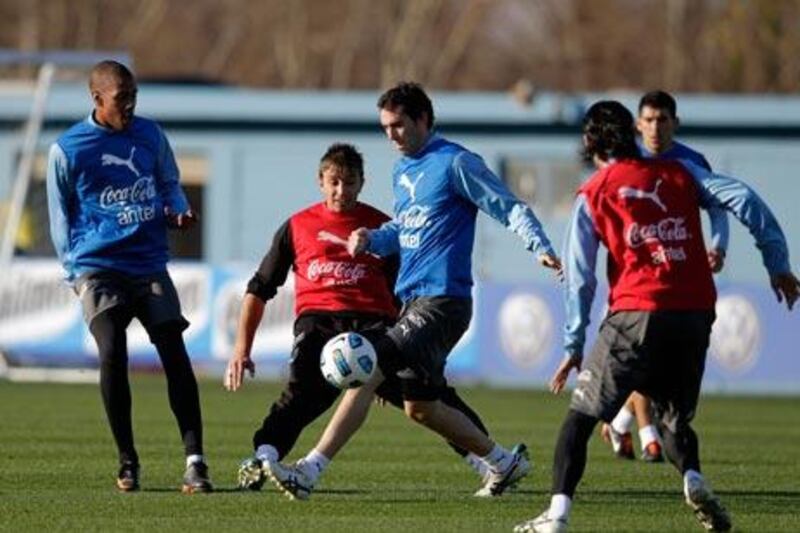There can be a temptation to think of South America as international football's equivalent of the Scottish Premier League or, increasingly, Spain's Primera Liga, as an environment where the also-rans are overshadowed and outperformed.
While the spotlight tends to be drawn to Brazil and Argentina, the South American superpowers have both a new and an old challenger. For the second successive year, neither has progressed beyond the last eight of an international competition. Uruguay, however, have outlasted their more populous and glamorous neighbours.
If it was a surprise that Brazil and Argentina exited in the quarter-finals of the 2010 World Cup, it constituted a major shock that both went out of the Copa America at the same stage.
Uruguay were responsible for ousting the Argentines, a victory on penalties that could set up a greater triumph. Should they beat Paraguay in tonight's final - they are expected to, but being favourites has been perilous in an unpredictable tournament - they will become continental champions for a record 15th time.
Uruguay, the Copa America's inaugural winners 95 years ago and the original World Cup winners in 1930, are enjoying a renaissance. Semi-finalists in the World Cup and lining up in tonight's Buenos Aires showpiece, a country of just 3.5 million people is overachieving.
Luis Suarez and Diego Forlan were revelations in South Africa, when the latter was voted the player of the tournament and finished as the joint top scorer. While the Atletico Madrid forward is yet to open his account in Argentina, Suarez now tops the scoring charts after his two semi-final goals defeated Peru.
Arguably, Uruguay now possess three major talents. Edinson Cavani's 33-goal season for Napoli may have propelled him into the stratosphere that his strike partners occupy, but a knee strain may keep him on the sidelines tonight.
The coaching of Oscar Washington Tabarez is notable for the constancy of his selections. Twenty-one of his 23-man squad were in South Africa last summer, a permanence that, while they ply their trade in 10 countries, renders them a club team on the international stage in the sense of understanding with one another.
Three of Uruguay's nine most-capped players of all time are in the current squad.
Besides the enviable attack, the goalkeeper, Fernando Muslera, was named man of the match as Argentina were eliminated, when he saved a penalty from Carlos Tevez in the shoot-out.
Paraguay, however, are the continent's penalty kings, with first Brazil and then Peru dispatched. The Paraguayans have scored seven of their eight penalties while, remarkably, the goalkeeper, Justo Villar, has been beaten by only three of the eight he has faced.
Paraguay, like Uruguay, were winners at the World Cup, a sparsely populated country (with 6.5 million inhabitants) reaching the quarter-finals. They, too, are under the same management - Gerardo Martino, who will watch from the stands tonight, in their case - and have seen no need to discard loyal and long-serving stalwarts. Villar, the defender Paulo da Silva and the striker Roque Santa Cruz belong in their hall of fame: all three are among the six most-capped players with the last doubling up as the record-goal scorer.
Goals, however, have been collectors' items in some of Paraguay's games. Three, including the last two, have finished in stalemates; as the other two were score draws, Martino's men are trying to tie their way to the title.
This is their first final since 1979 and should they lift a trophy after a sixth successive draw, it would be a surreal conclusion to a tournament that has made fools of the pundits.
If Uruguay prevail, it will cap the resurgence of South America's original force and give them the right to brand themselves the region's greatest force in local skirmishes. Either way, this is a final notable both for who is playing, and for who is not.






